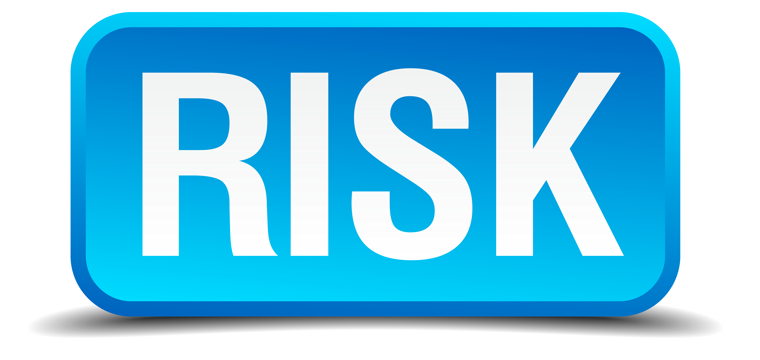
The CleanFinancial.com guide to leverage and margin.
- What is Leveraged Trading?
- Do Not Confuse Margin with Trading Costs
- Leveraged Trading Example
- Share Trading vs Leveraged Trading
- Margin Call
- Typical Margin Requirements
What is Leveraged Trading?
A highly promoted aspect of spread betting is leverage. With leveraged trading you only need to make a small deposit, often as little as 1%, of the purchase price.This means that to buy a trade with a value of £10,000, for example, you do not have to deposit £10,000, you may only have to deposit £100.
Once you have entered the trade, you receive the benefit of any price movement on the full £10,000. The downside of this is that you will also have to stand any losses in full.
In short, leverage amplifies your profits and your losses. This is why spread betting, and others forms of leveraged trading like CFDs and margined forex, carry a high level of risk to your capital.
If you are spread betting and apply a guaranteed stop loss to your trade you cannot lose more than you risked on that particular trade.
Do Not Confuse Margin with Trading Costs
Think of margin as a deposit. Yes, if you lose the trade you may lose your deposit but if you make a profit, the deposit is returned to your account.With spread betting, the main cost for investors is often the difference between the buy and sell price, this is essentially the company’s commission.
Note that there are sometimes other costs such as financing fees.
If you roll over a trade on a daily market, e.g. a ‘spot’, ‘daily funded bet’ or ‘rolling daily’ market, into the next trading day then you may have to pay a small fee, for more details see our guide to rolling trades.
Leveraged Trading Example
Let’s say you deposit £100 and spread bet on the FTSE 100 with a leverage of 100:1.Should there be a 1% increase in the FTSE, you would make £100 on the trade, which at a leverage of 100:1, equates to a 100% profit (of your deposit).
However, if the UK index fell by 1%, you would lose the same amount of money, i.e. the entire £100 you deposited for the trade.
The above is actually an oversimplification, in reality to take such a position the spread betting firm might ask for a deposit of £120, where the extra £20 is used like a buffer should the underlying market gap and your loss exceed £100.
Share Trading vs Leveraged Trading
When trading stocks and shares, ordinarily you need to pay the full value of the product you are speculating on. This can limit your potential gains if your trading capital does not match up to your strategy.This high level buy-in prevents many would-be traders from entering the market.
Spread betting firms let traders circumvent large deposits by using leverage / letting investors ‘trade on margin’. This allows you to trade with only a percentage of your position’s total value.
For example, if a trader buys £1,000 of shares in standard dealing, they have to deposit the full £1,000 to do so.
In contrast, if you open a spread betting position worth £1,000, you would only have to pay between 5% and 15% of the share value (£50 to £150). This deposit, which is required for each open trade on your account, is known as the margin requirement.
If the funds in your account run out, the trading platform will automatically close out your trades. However, it is common in trading to make a loss before the market moves in your favour.
For this reason it is a good idea to have sufficient funds in your account to sustain any losses in the short term. Otherwise your trade could be closed out before the markets move in your favour, denying you the chance to fulfil the potential profits of your spread bets.
Margin Call
If your position moves against you, you may have to add additional money your account (and position), this is know as a margin call.If you don’t increase your margin then your loss making trade might be closed and the loss realised on your account.
Typical Margin Requirements
Note that margins on popular markets like the FTSE 100 and EUR/USD don’t change very often and these markets typically have margin of around 0.5% – 1%However, margins for commodities e.g. silver, can change more often. This can happen because the exchanges on which the commodities are traded have altered their margin requirements for the brokers using them.
The brokers then pass on the change (good or bad) to retails investors like you and me.
Sample Margins
As an example, we have listed the margins from ETX Capital.
| Product | Margin |
| UK100 | 0.75% |
| Wall Street | 0.75% |
| Germany 30 | 0.75% |
| SP 500 | 0.75% |
| France 40 | 0.75% |
| Spain 35 | 1.00% |
| Gold | 1.50% |
| Silver | 3.00% |
| GBPUSD | 0.50% |
| EURUSD | 0.50% |
| Nymex Crude Oil Daily Futures | 1.50% |
| Brent Crude Daily Futures | 1.50% |
ETX Capital margins correct as of 31 July 2013.
Naturally you should check with your own provider / broker for their margin rates.
Spread betting and CFD trading carry a high level of risk to your capital and you may lose more than your initial investment. Spread betting and CFD trading may not be suitable for all investors. Only speculate with money that you can afford to lose. Please ensure you fully understand the risks involved and seek independent financial advice where necessary.
